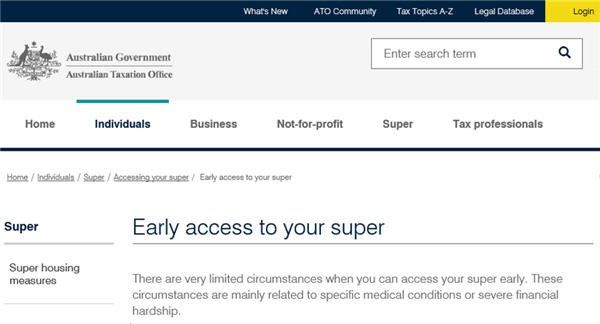FEE POLICY Page
What Can Be Included
Your Fees & Pricing Policy page can include:
- Standard Fees
- Patient Payment Types (Private, Uninsured Patients, Workers Compensation etc)
- Payment Policy
- Payment FAQs
- Finance
- Other Finance Mechanisms
Our Fee Policy
Fees & Charges
The cost of weight loss surgery is a significant consideration in your choice of clinic, in addition to your surgical care and aftercare. The overall amount depends on whether you have Private Health Insurance (at the right level) or proceeding uninsured; and whether you intend to apply for Compassionate Release of Superannuation.
Billing Types
For bariatric surgery you will have either
- Private Insurance - to cover bariatric surgery (usually a Gold level of cover in Western Australia)
- Un-insured (either Ancillary cover only, lower hospital cover or no private health insurance)
About Private Fee Patients
Our practice treats private fee patients. If you choose to be treated as a private patient you will be able to:
- choose your own treating specialist, and
- be treated at hospitals that our doctor is affiliated to or is a visiting medical specialist,
After discharge, your care and follow up appointments will be carried out by your specialist and team in either
- One for Women in Murdoch
- Telehealth
- Your GP can refer you for a Care Plan for Allied Health Services such as Dietetics, Psychology and Nursing care.
As a private patient our surgeon will perform your surgery personally and will also look after you if you are advised to be an in-patient. All follow up appointments will be in our private rooms.
Fee Estimates
We offer informed financial consent to all our patients prior to surgery. This is a pre-treatment estimate of your surgical costs.
While the fees charged may depend on the specific course of treatment, our practice's standard fees are in line with the Australian Medical Association recommended fee schedule. This means that in most instances there will be a ‘gap’ between our surgical fee and what is covered by Medicare and your health insurance fund.
If there is any problem with either the fee estimate or any other billing issue, it is important that you ask our staff. They can help you navigate what can be a complex process by either advising and helping explain the charges and rebate structure.
All Fee Categories
Our practice fees for either Consulting or Surgery may sometimes only be part of your treatment cost.
Other possible fees or disbursements involved in your care are dependant on which course of action is chosen for your treatment. You may need to also check with your health fund to see what is covered for additional areas of service. Potential fee categories to be sure of can include:
- Hospital Fees,
- Surgical Assistant Fees,
- Implants or Prosthesis Costs,
- Anaesthetists Fees,
- Diagnostic Tests (Radiology, Pathology), and
- Post-Operative Care.
Patients with Private Health Insurance (for bariatrics)
Having private health insurance to cover bariatric surgery is usually the best option. Not only are you covered for most in-patient hospital services, you are covered for anything that might happen - if you need an extra night in hospital, more tests or investigations, medications etc.
The most common item numbers are 31575 (sleeve gastrectomy) or 31572 (gastric bypass)
If you have private health which covers bariatric surgery this will include the following:
- Hospital theatre - all costs involved with the products used in theatre, including all staples, prosthetics, skin glues and other devices
- Hospital stay - your inpatient stay each night, whether this is on the ward or in ICU/CCU/HDU
- Anaesthetic medications and devices
There will be partial cover towards the following, depending on your insurer:
- Hospital medications - including discharge medications
- Hospital tests and investigations - there will be partial cover towards any inpatient blood tests or scans
- Allied health - Dietitian and Physician appointments may be partially covered depending on your level of cover
There will be a gap for the following
- Surgeon fee - there is an out of pocket cost which will be quoted at the time of consultation
- Anaesthetic fee - there is an out of pocket cost which can be quote by your allocated anaesthetist
Patients with no Private Health Insurance (for bariatrics)
If you do not have the appropriate level of PHI, you can either have a consultation and await the 12 month waiting period or proceed uninsured (in selected circumstances, discuss with your surgeon to see if you are medically suitable).
Some charges will be partially covered by Medicare such as:
- Surgeon fee - contribution towards outpatient consultation as well as surgery
- Hospital expenses – Theatre costs, bed allocation and equipment costs as well as extras such as pathology/radiology/pharmacy
- Anaesthetic fees – partial Medicare rebate
- Dietitian appointments – no rebate
Early access to superannuation for compassionate reasons
Some patients may be eligible to use their super to pay towards the out of pocket costs. Please discuss this with your surgeon at your first consultation.
Payment Policy
About Our Payment Policy
Our reception staff will be happy to advise you of the consultation fee upon booking an appointment over the telephone. Fees for consultation along with other necessary forms will also be sent to you for your convenience upon booking an appointment.
Surgical fees are billed directly to the Health Insurance Providers. Often there are additional fees for out-of pocket co-payments, these amounts may vary depending on the payment type and the complexity of your surgery or procedure. Patients will be advised, in writing, after the consultation, with a fee estimate and the amount of any gap payment.
Fees or programs available for uninsured patients are advised by the accounts manager upon request.
How to Pay
Payment on the day of consultation is much appreciated. For your convenience we accept a number of payment methods in the rooms, by post and online.
Other Payment Choices
Medical Finance Options
There are a range of medical finance specialists who help fund medical procedures, some providers include:
- Zip
- Medipay
- MacCredit
Early Release Superannuation
Patients may apply to Centrelink for an early release of superannuation funds to cover part or all of the costs involved. More details can be found on the Centrelink website.
If you chose to apply for this, three documents need to be lodged:
Completed application form - click for more information
- A letter of support from your General Practitioner
- A letter of support from our clinic (we will provide this after your initial consultation)
Please note that processing time by Centrelink generally takes around 3 weeks, and allow a further 4-6 weeks for your superannuation fund to release the funds to your personal bank account.
Tax Rebate Scheme For Medical Expenses
A significant rebate can be claimed through your end of year tax return if you incur medical expenses over $2,000 during the one financial year. Anyone can claim the tax offset: there is no upper limit on the amount you can claim, however it is now income tested. The rebate is currently 20 cents for every dollar over the $2000 threshold.
There is no upper limit on the amount you can claim, and it is not means or assets tested. Because this is a rebate rather than a tax deduction, you can claim this from the ATO even if you do not pay tax. As always, also check with your accountant or financial advisor.
Because this is a rebate rather than a tax deduction, you can claim this even if you do not pay tax. It is claimed at question T9 on your tax return. As always, be sure to check with your accountant or financial advisor. Further details can be found by clicking here










